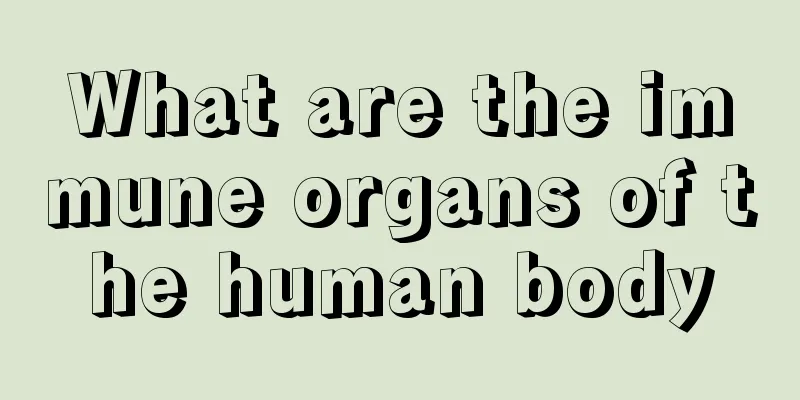What are the digestive organs of the human body

|
Our human body is a very complex system. The digestive system alone is divided into the upper digestive tract and the lower digestive tract. From our mouth to our large intestine, they all belong to the digestive tract. There are also many branches in the small intestine and large intestine in the digestive tract. The liver, pancreas, and salivary glands are also digestive glands in the digestive organs. This article introduces the details of the human digestive organs. If you want to know more about this, let’s take a look. 1. What are the digestive organs in the human body? The human body's digestive organs are composed of the digestive tract and digestive glands. The digestive tract includes: mouth, pharynx, esophagus, stomach, small intestine (duodenum, jejunum, ileum) and large intestine (iliac colon, appendix, ascending colon, transverse colon, descending colon, sigmoid colon, rectum). The digestive glands include: salivary glands (parotid glands, submandibular glands, sublingual glands), liver (gall bladder), and pancreas. 2. The main digestive organs of the human body 1. Oral cavity In fact, we have already digested food starting from our mouth. When we are eating, we often hear our family members say that we should chew food slowly. In fact, this statement makes sense. By chewing food slowly, we can bite the food more thoroughly, making the nutrients in the food easier to absorb and more conducive to the subsequent digestion process. At the same time, we also have digestive enzymes in our mouths that can also help us digest food. 2. Stomach The stomach is the digestive organ we are most familiar with. We all know that the stomach mainly digests food through gastric acid. In fact, to be more specific, the main function of the stomach is decomposition, which is to decompose it through various enzyme substances. On the one hand, it helps us better digest a food and absorb its nutrients. On the other hand, it is also beneficial to the subsequent digestion process. 3. Small Intestine The small intestine is an important digestive organ in our body. The nutrients of the food we eat are mainly absorbed through the small intestine. That is to say, whether it is chewing in the mouth or decomposing food in the stomach, it lays the foundation for the small intestine to better absorb the nutrients inside. There are various enzymes in the small intestine that can fully absorb the broken down food. 4. Large Intestine The large intestine is the last organ to work in the digestion process in our body. However, what enters the large intestine from the small intestine are basically the final products and waste that have been almost digested. The large intestine can further absorb the water and salt substances in the food residue, and then the remaining waste will form feces in the large intestine and be excreted from the body. |
<<: People who can tolerate cold and heat have good physique
>>: My face is badly swollen after dyeing my hair
Recommend
How to effectively treat dampness and toxins on the face
If the dampness and toxins on the face cannot be ...
What to do with varicose vein lumps?
Varicose veins are a relatively common disease. T...
Treatment of enuresis
Enuresis, as the name suggests, is a disease in w...
What is the main function of aldosterone?
Most people are familiar with aldosterone. The ma...
Panic, shortness of breath, chest tightness, sweating
Sometimes we don’t do any activities or eat anyth...
How to cut garlic sprouts
Garlic sprouts are a kind of vegetable that grows...
Early symptoms of malignant melanoma
Melanoma can generally be divided into benign mel...
The efficacy and function of Amomum villosum
Amomum villosum, also known as Western Amomum vil...
Sequelae of brain tumor resection
The scientific name of brain tumor is intracrania...
What does BCG prevent
There are many types of vaccines, and different v...
This method of peeling pineapple is very simple
Pineapple is a very popular fruit. It is sweet an...
What is the main cause of cervical cancer?
Cancer is very common in life, and many women suf...
What to do if the durian is not ripe yet
Durian has high nutritional value. In addition to...
What tests can be done to detect nasopharyngeal cancer in the early stages?
Early nasopharyngeal carcinoma can be screened th...
alert! 12 bad habits that make you "easy to get tired"
In the high-pressure and fast-paced modern societ...









